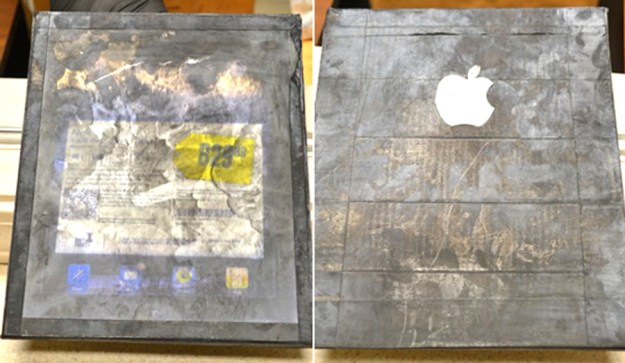
Earlier this week, 22-year-old Angela McDowell of Spartanburg, South Carolina was leaving a McDonalds when approached by two men in the parking lot. Inside a large cardboard box, the men claimed to be selling discount iPads for $300 based off a volume discount. After showing her a working model, the duo convinced McDowell to purchase an iPad. While McDowell was only able to offer $180 for a new iPad, the deal was quickly made and McDowell received a sealed, cardboard FedEx box. When she returned home, she opened the box and found a piece of wood painted to look like an iPad (pictured above). The plank had the Apple logo painted on the back of the unit and Safari, Mail, Photos, and iPod app buttons on the front of the unit. The crooks even included a fake Best Buy label on the front of the wooden iPad.

This type of scam is typically called the brick con, parting a mark from a large amount of money by dangling the concept that they are getting a high value object for an extremely discounted price. Oddly, the scam doesn’t require the extensive lengths that this criminal went to in recreating the design of an iPad on a block of wood. The scam usually entails swapping out an expensive item for something of a similar weight, regardless of design.


